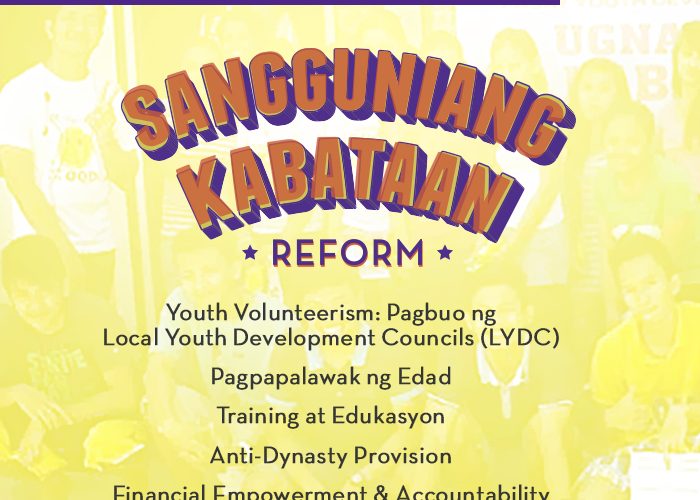Sen. Bam: Encourage youth to help gov’t anti-drug campaign through SK
Sen. Bam Aquino wants to see the Sangguniang Kabataan elections push through this October and allow the youth to help in the government’s anti-drug campaign.
“Instead of inciting fear, let’s give the youth the opportunity to help solve the drug problem and other issues in their community. Let’s encourage them through the SK,” said Sen. Bam.
During the Senate hearing on measures seeking to postpone the barangay and SK polls, Sen. Bam urged fellow lawmakers and concerned government to look into the possibility of holding a separate SK polls in October this year, saying the implementation of Republic Act 10742 or the SK Reform Act is long overdue.
“The last SK election was 7 years ago. Since then, we’ve reformed the SK and even included an anti-political dynasty provision. I would personally want to see the SK elections push through to empower our youth leaders,” said Sen. Bam.
Sen. Bam Aquino has long advocated for the Filipino youth as a student leader and former chairman of the National Youth Commission.
Sen. Bam pushed for the RA 10742 SK Reform law’s passage as co-author and co-sponsor during his time as chairman of the Committee on Youth in the 16th Congress.
The law adjusts age limit of SK officials from 15-17 to 18-24 years old, making them legally capable of entering into contracts and be held accountable and liable for their actions.
The law also requires SK officials to undergo leadership training programs to expose them to the best practices in governance and guide their development as leaders.
The new law also mandates the creation of the Local Youth Development Council (LYDC), a council that will support the SK and ensure the participation of more youth through youth organizations.
The LYDC will be composed of representatives from the different youth organizations in the community – student councils, church and youth faith groups, youth-serving organizations, and community-based youth groups.
Sen. Bam is also the principal sponsor and one of the co-authors of the Universal Access to Quality Tertiary Education Act.



Recent Comments